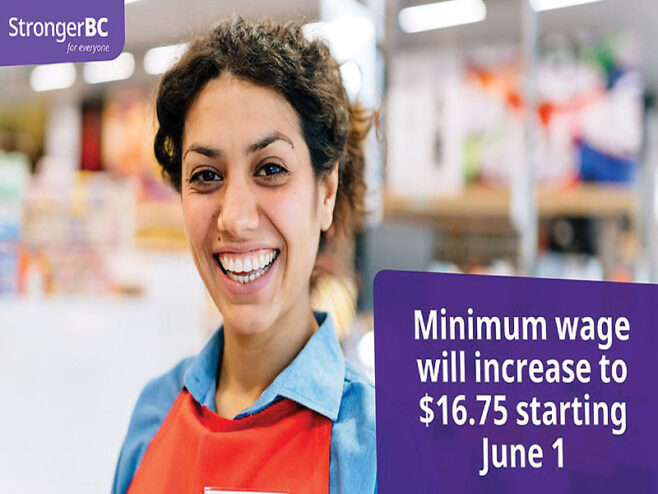On June 1, 2023, B.C.’s lowest-paid workers will get a pay raise with the general minimum wage increasing from $15.65 to $16.75 an hour.
“Having a minimum wage that keeps up with inflation is a key step to prevent the lowest paid workers from falling behind,” said Harry Bains, Minister of Labour. “These workers and their families feel the impacts of high costs much more than anyone else. We are maintaining our policy of tying the minimum wage to inflation.”
The 6.9% increase in minimum wage rates reflects B.C.’s average annual inflation rate in 2022. The adjustment reflects government’s commitment to tie annual minimum wage increases to inflation. The same increase will apply to wages for residential caretakers, live-in home-support workers and camp leaders. On Jan. 1, 2024, piece rates for 15 hand-harvested crops will also increase by 6.9%.
“Elevating the minimum wage is a necessary response to inflation. The inflation we are experiencing now in B.C. is driven by profits, not wages,” said Jim Stanford, director, Centre for Future Work. “It is unfair to expect the most vulnerable workers to give up some of their non-discretionary income because of record high inflation. By ensuring fairer compensation for our lowest-paid workers, we will reduce inequality and foster a more inclusive society.”
The increase will positively affect approximately 150,000 workers who earn less than $16.75. Many are food service staff, grocery store workers, retail workers and others who were essential workers during the pandemic.
Government has made regular, gradual increases to the minimum wage to provide certainty for workers and predictability for businesses. Overall, B.C.’s minimum wage has increased from one of the lowest in the country to one of the highest. The minimum wage was $10.45 per hour in 2015. (news.gov.bc.ca)
By Rey Fortaleza








